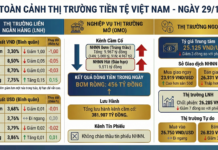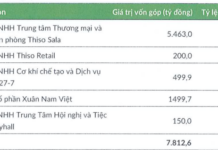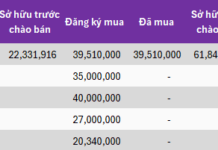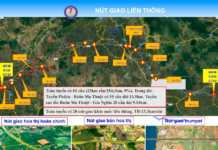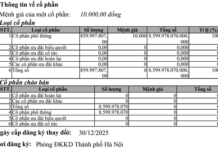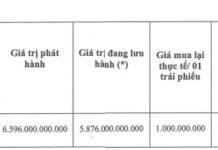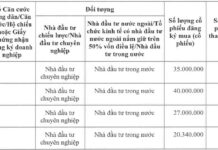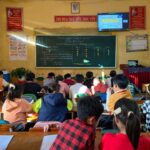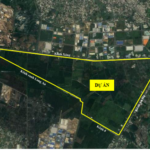It’s been 16 years since Viettel first launched its “Educational Network Connection” program, commonly known as the Internet for Schools…
“I still remember the time I went on a business trip with the Information Technology Department officials of the Ministry of Education and Training. We went to evaluate the quality of the Internet at a secondary school in Muong Nhe, Dien Bien, in 2009,” recalled Dao Trong Trinh, Director of the Enterprise Solutions Corporation’s Telecommunications Business Center (VTS), Viettel Group. “Even though we were just regular employees and specialists, we received a very warm welcome. The teachers and students greeted us in the school yard, and we could sense their appreciation and gratitude.”
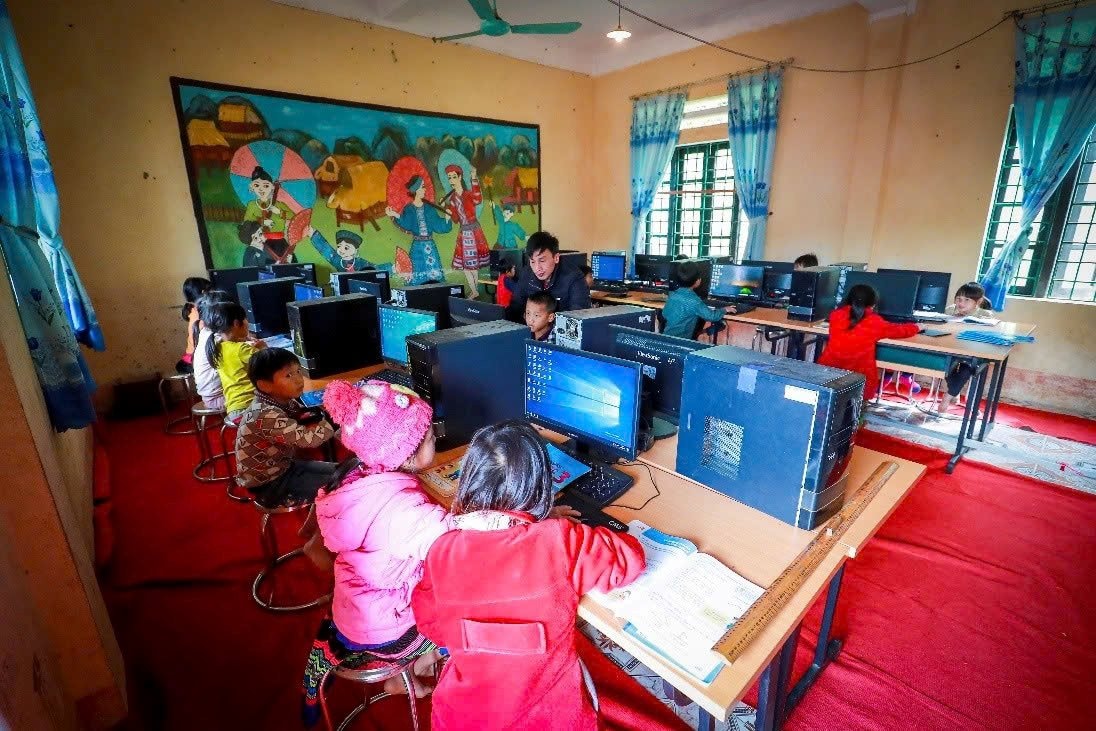
Viettel’s Internet for Schools program was launched in 2008. Photo: Tran Long
A Journey of Clicking Mice to Open Up the World for Disadvantaged Students
Over the past 16 years, to ensure that each school is equipped with quality Internet access, Viettel employees have maintained close coordination with the Ministry of Education, local departments, and schools. The process involves several steps. First, the team needs to survey and assess the current infrastructure, geographical distance, terrain, and existing equipment. Based on this information, they calculate and prepare a report on the factors affecting the installation. Then, they determine the appropriate technology solution.
After completing the installation and configuring the equipment, the team must train and guide the teachers and school staff on how to use the Internet, connect to the network, and utilize online resources. Finally, they perform technical checks before putting the system into operation.
Following the initial phase of bringing the Internet to individual schools, Viettel has continuously maintained stable and high-speed network quality. Since the beginning of 2024, the bandwidth of the package has been doubled, further enhancing transmission speed. For new educational institutions, Viettel continues to sponsor the connection.
In the mid-2000s, Viettel had only achieved initial success in the telecommunications field, and there was much to be done to expand its business and profits. However, Viettel’s leaders set the ambitious goal of providing Internet access to 100% of schools in Vietnam, something no other company had dared to attempt. Behind this decision was the aim of offering equal educational opportunities to all Vietnamese children.
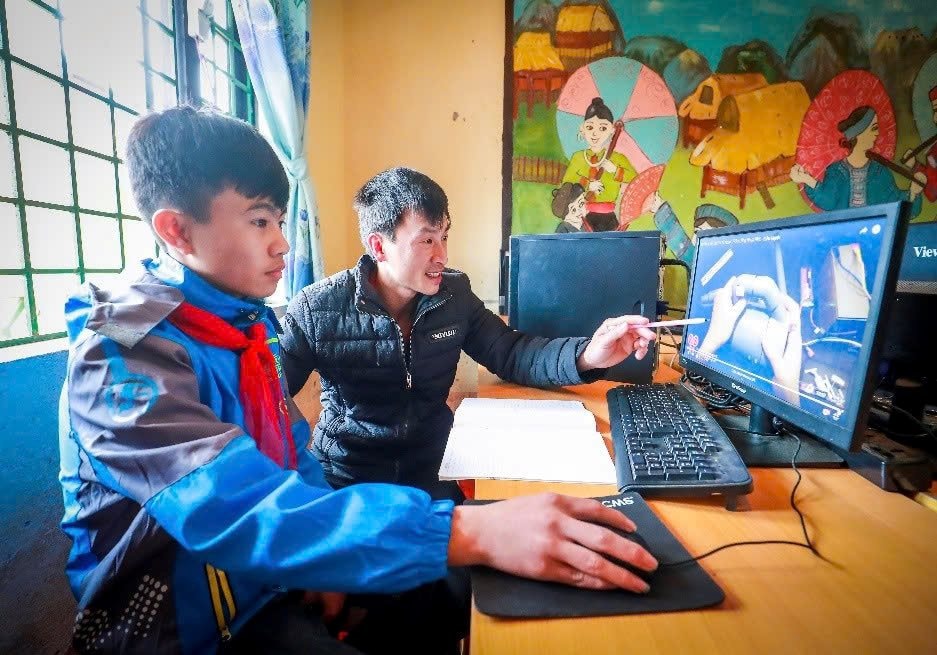
Since the arrival of the Internet in these remote areas, teachers no longer have to travel long distances to send reports to the lowland areas. Photo: Tran Long.
“Viettel’s leaders were very hands-on in this project,” said Mr. Trinh. “One of the criteria for evaluating employees at that time was the rate of Internet deployment in schools.” During that period, most schools in remote and rural areas of Vietnam did not have Internet access, and even in large cities, only a limited number of schools had a network connection.
Nguyen Trung Hiep, an employee of VTS’s Digital Education Solutions Center, who has also been involved in the Internet for Schools program since its early days, shared that what motivated him to dedicate himself to this project was learning about the struggles of teachers in remote schools. They had to travel dozens of kilometers through the forest just to find an Internet connection to send their reports. This physical barrier made even simple tasks, easily done in urban areas, a challenging journey for those dedicated to bringing education to these remote areas.
“The program officially started in 2008 and concluded in 2010, but it took us just over a year to bring the Internet to almost all schools across Vietnam,” said Mr. Hiep. “At the time, we just focused on completing our task, but later on, we realized the immense value of the Internet for Schools program. It has made a significant difference, even in the smallest ways, such as relieving teachers from having to travel long distances,” he added.
Achievements Beyond Numbers
With over 20 years of experience in the education sector, from being a classroom teacher to a school administrator, Principal Le Van Luc of Viet Yen No. 2 High School (Bac Giang) has witnessed firsthand how the Internet has transformed teaching and learning.
According to Mr. Luc, one of the most significant changes is the endless source of reference material available online. Additionally, the interaction and collaboration between individuals have greatly improved. For example, in the past, lesson plans had to be handwritten and then brought to school for the department head’s approval. Now, with digital lesson plans, both the teacher and the approver can work on the same document, saving time and resources.
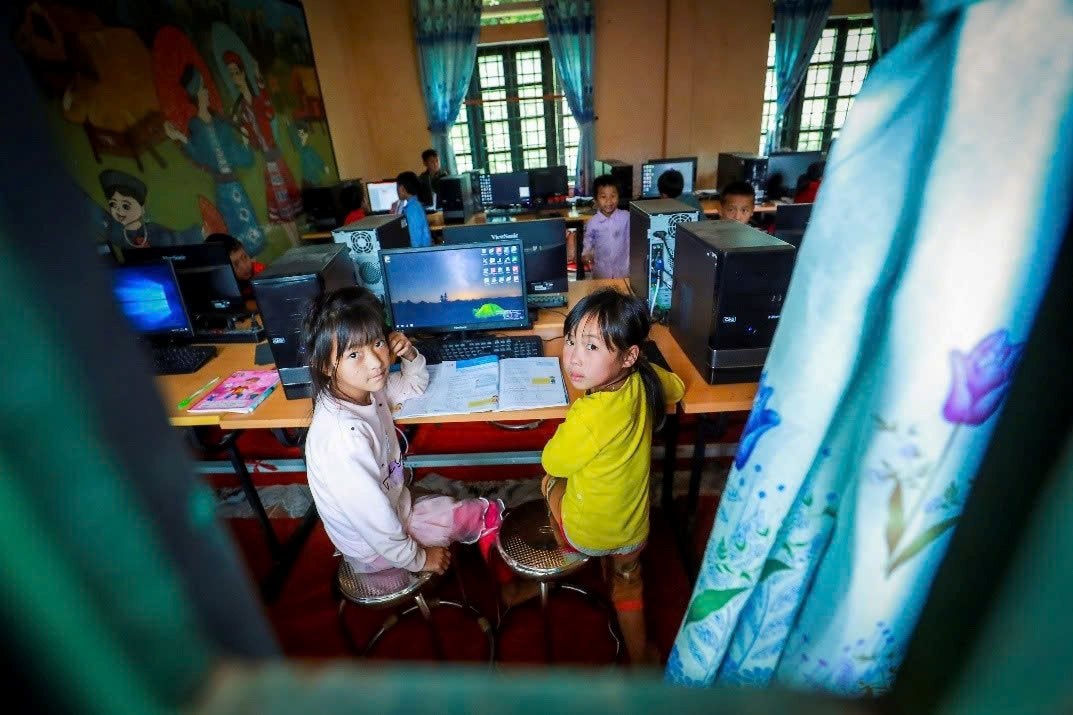
The world of children in remote areas expands as the Internet brings them vivid images of life outside their villages, places they have never visited. Photo: Tran Long
Furthermore, parent-teacher interactions have become more efficient with the availability of messaging platforms and chat groups. In the past, communication with parents was mostly limited to parent-teacher conferences. Even with the advent of mobile phones, reaching out to all parents was still a time-consuming and laborious task.
Regarding the Internet for Schools program, the leaders of the Viettel Group shared: “We are doing something that even the United States is striving to achieve. By the end of President Obama’s term, they aimed to bring broadband Internet to 15,000 schools in the country. The bigger difference is that this connectivity is provided free of charge by a business.”
The reference here is to the “ConnectED” initiative launched by former US President Barack Obama in 2013. The plan aimed to ensure that within five years, 99% of America’s students would have access to high-speed broadband and wireless Internet.
Throughout its 16-year journey, Viettel has provided free fiber-optic Internet to 46,000 educational institutions worldwide (including Vietnam and 10 foreign markets). This has benefited 25 million teachers, students, and learners by providing them with Internet access.
This achievement has been recognized globally. In late September 2024, Viettel’s Internet for Schools program was ranked among the top 3 in Fortune magazine’s “Change the World” list. This ranking honors corporations that have made significant contributions to addressing social and environmental issues globally over the past decade. Viettel’s position is just behind the space-related initiatives of GHGSat, Rocket Lab, and SpaceX, and Grab’s solution to financial accessibility in Southeast Asia.
With the advent and proliferation of 5G technology, the Internet for Schools program holds even more promise for students in rural and remote areas. The high-speed, low-latency connections of 5G provide a foundation for transformative changes in online teaching and learning, further promoting equality in education.
“EQuest: A Triple Crown of ESG Excellence”
The EQuest Education Group has been recognized by the American Chamber of Commerce in Vietnam (AmCham Vietnam) at the 2024 ESG Impact Showcase awards. This marks the third consecutive year that EQuest has been acknowledged for its outstanding contributions to advancing ESG (Environmental, Social, and Governance) initiatives.
Is Early Retirement on the Cards for Preschool Teachers?
The proposed Teacher Law features a range of unique policies designed to support teachers. These include competitive allowances, reasonable retirement ages for early childhood educators, and provisions for highly qualified teachers.
“Dr. Entrepreneur: Philanthropy, Child Welfare, and Gender Equality Champion.”
Dr. Nguyen Thi Phuong Thao, a prominent entrepreneur and one of Asia’s most powerful women, has been recognized by the prestigious Fortune Magazine in their 2024 list. Dr. Thao epitomizes the modern Asian woman, tirelessly contributing to the happiness and well-being of children and advocating for gender equality.
“Viettel Mobile Network: Growing Alongside a Nation’s Fortunes”
Born in a dynamic economic growth period of the country, Viettel Mobile has thrived by aligning its business goals with the nation’s development objectives.







